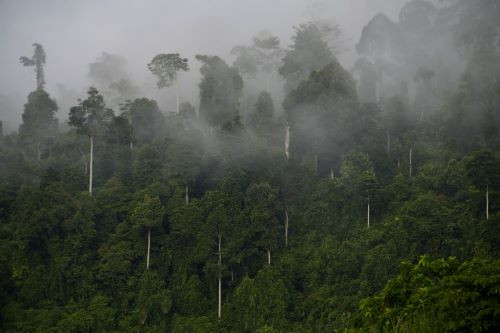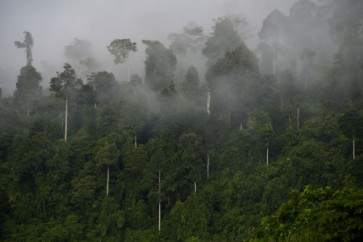Popular Reads
Top Results
Can't find what you're looking for?
View all search resultsPopular Reads
Top Results
Can't find what you're looking for?
View all search resultsIndonesian social forestry often excludes women from decisions, risking greater inequality
Women remain underrepresented in forest management bodies despite efforts to boost their presence, leaving them out of decisions about their forests.
Change text size
Gift Premium Articles
to Anyone
O
ur analysis of Indonesia’s social forestry permits shows that women remain underrepresented in forest management bodies despite efforts to boost their presence, leaving them out of decisions about their forests.
Social forestry redistributes forest management rights to local communities to advance sustainability and local livelihoods. In 2021, the country revised its social forestry regulations to allow one family representative to participate in social forestry management bodies, “giving equal opportunity to both men and women”.
However, our analysis of the 400 most recent social forestry permit documents, combined with extended, multi-method field research at four sites, shows that women are often excluded from management bodies but are more involved in social forestry business groups, such as Kelompok Usaha Perhutanan Sosial or KUPS. These groups focus on the processing and sale of forest products.
This low level of participation in management excludes women from decisions about who receives benefits such as land for cultivation, seedlings, equipment, extension training and technical information provided by the government and NGOs. The absence of women may deepen local inequalities and hamper effective forest management.
Gender gaps in social forestry
We reviewed the 400 most recent decree letters issued in 2024 that granted forestry management rights. These included 100 permits each for the managements of Hutan Desa (Village Forests) and Hutan Kemasyarakatan (community forests) and their respective KUPS. Village Forests are rights collectively held and managed by village administrations, while Community Forests are issued to specific farmer or community groups.
Our analysis found that across Indonesia, women are often underrepresented in management groups. On average, only 19.54 percent of members in Village Forest’s management bodies were women, with participation ranging from zero to 80 percent. This number was even lower in Community Forests, averaging 13.95 percent women, with some groups having no female members and others up to 56.52 percent.



















